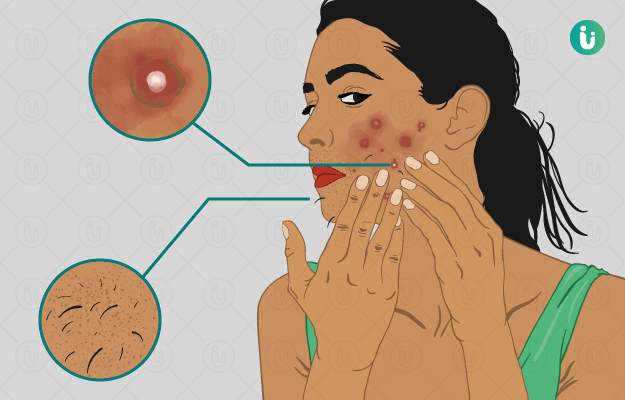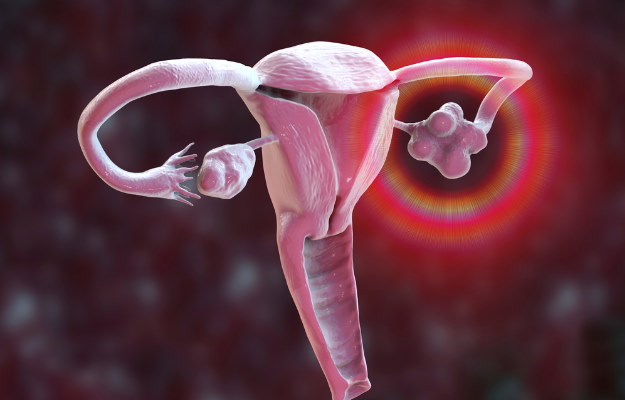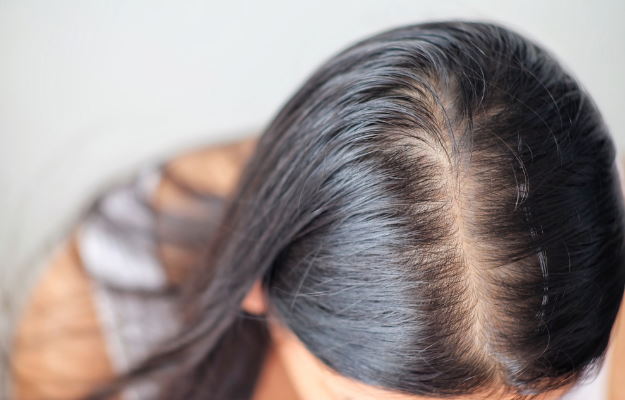What is Polycystic ovarian syndrome (PCOS)?
Polycystic Ovary Syndrome, abbreviated as PCOS, is a set of symptoms manifested due to hormonal imbalance in women. It typically affects women in the reproductive age group between 18- 35 years of age. The condition derives its name from one of its classical symptoms. The ovaries of affected women have (not always) 12 or more follicles in at least one of the ovaries along with disturbed levels of other hormones like follicle stimulating hormone (FSH) and luteinizing hormone (LH).
What are its main signs and symptoms?
The symptoms include
- Amenorrhea i.e., lack of periods
- Dysmenorrhea i.e., painful periods
- Irregular periods
- Hirsutism i.e., excess body and facial hair
- Pimples/ acne
- Pain in pelvic region
- Difficulty getting pregnant
- Obesity, with a tendency of abdominal fat accumulation
- Peripheral insulin resistance
- Infertility
- The patient may present with a familial history of menstrual disorders, adrenal enzyme deficiencies, infertility, obesity and metabolic syndrome, or diabetes. Alternatively, they may complain of excessive bleeding or prolonged periods.
What are its main causes?
PCOS shows a genetic predisposition and appears to be inherited in an autosomal dominant manner, from both parents. The patients have an increased level of androgens (male hormones), especially testosterone, in their bodies. These hormones interfere with ovulation patterns and lead to an array of other symptoms. The hormones lead to arrested maturation of follicles. These immature follicles are what make the ovary appear as if it is full of fluid-filled cysts.
How is it diagnosed?
Diagnosis includes a detailed clinical history and physical examination. Laboratory investigations include thyroid function tests; levels of FSH, prolactin, and LH; testosterone and blood glucose levels. Prior to these, non-invasive imaging such as ultrasonography may be made. The classical appearance of the cysts in ovaries is that of a string of pearls.
Treatment includes motivating the patient to adopt a healthier lifestyle. Modifications including a healthier diet, losing weight and regular exercise help in reinstating the balance of the hormones. Also, hormone therapy may be prescribed by the doctor. Insulin sensitising drugs like metformin also help in cases of prediabetes or insulin resistance.

 Doctors for Polycystic Ovary Syndrome (PCOS)
Doctors for Polycystic Ovary Syndrome (PCOS)  OTC Medicines for Polycystic Ovary Syndrome (PCOS)
OTC Medicines for Polycystic Ovary Syndrome (PCOS)
 Polycystic Ovary Syndrome (PCOS) articles
Polycystic Ovary Syndrome (PCOS) articles

 Ayurvedic Treatment of Polycystic Ovary Syndrome (PCOS)
Ayurvedic Treatment of Polycystic Ovary Syndrome (PCOS)
 Diet for Polycystic Ovary Syndrome (PCOS)
Diet for Polycystic Ovary Syndrome (PCOS)
 Home Remedies for Polycystic Ovary Syndrome (PCOS)
Home Remedies for Polycystic Ovary Syndrome (PCOS)
 Homeopathic Treatment of Polycystic Ovary Syndrome (PCOS)
Homeopathic Treatment of Polycystic Ovary Syndrome (PCOS)
 Yoga for Polycystic Ovary Syndrome (PCOS)
Yoga for Polycystic Ovary Syndrome (PCOS)







 Editorial Team
Editorial Team



 Dr. Archana Nirula
Dr. Archana Nirula

 Dr. Vishal Makvana
Dr. Vishal Makvana












